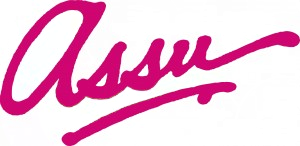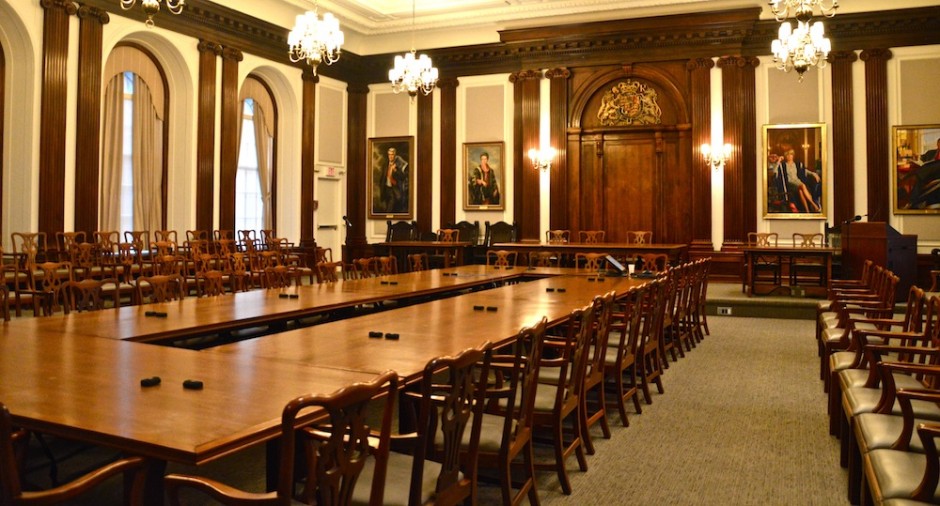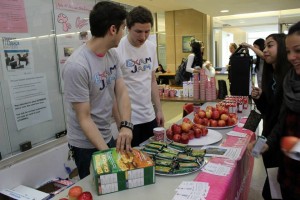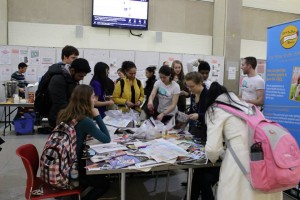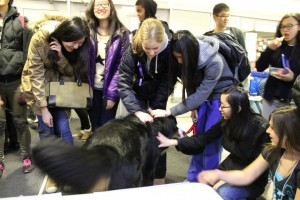ASSU Council will be meeting to elect their new Executive Council for the 2014-2015 year on Wednesday March 19th at 4p.m. in SS2135.
The ASSU Executive is responsible for implementing policy initiated by Council, as well as working with Course Unions, the administration, and other campus groups to improve the academic life of students in the Faculty of Arts and Science.
The Executive is made up of seven members: one President, and six Executive members. Four of these Executive members are elected at this meeting, and two will be elected at the first ASSU council meeting in the next fall term.
Each Course Union will get two votes, one for their President or delegate, and one for their second council member. Current ASSU Executive members can also vote for candidates.
Here are the official statements from the candidates running for Executive:
Presidential Candidate (Acclaimed)
Abdullah Shihipar
Hi everybody. My name is Abdullah Shihipar and I am running to be your president.
Having served on ASSU for the past two years, I know the challenges we face as students in the Faculty of Arts and Science. We are privileged to be able to learn from some of the brightest minds in the world, however at the same time our academic experience is hindered by challenges the size of our faculty presents.
These past two years, together we have been able to accomplish a lot. We expanded our course union forum and increased cooperation, we worked with the faculty to tackle issues like private review sessions being hosted on campus, drop dates and syablli issues and collaborated to bring you events like Exam Jam. However, there is still a lot to do.
Inefficient course evaluations, flat fees and the declining quality of the educational experience in our faculty make it harder for students to earn a degree without facing significant academic, social and financial stresses. Taking a significant toll on their mental health. As president, I promise to first and foremost, listen to what you have to say and make sure your concerns are effectively represented at the decision making table. I wish to continue our productive relationship with the faculty, but I will also not hesitate to advocate for students on contentious issues.
Working together, we can overcome the obstacles we face in our quest for a better quality, affordable and accessible education for all.
Executive Candidates
Dylan Chauvin-Smith
I am running for re-election to the Arts and Science Students’ Union largely so that I can continue the work that I started this year and because my commitment to student issues hasn’t wavered.
If re-elected, my main focus will be the Syllabus Review Project that I initiated this academic year. The impetus of this project is to provide our executive team with the statistical data necessary to demonstrate the kinds of systemic policy compliance issues that are so often the subject of our advocacy to the Faculty administration.
I will continue to fight for a fairer fee structure, a better user interface for course evaluation results, and a more equitable academic environment. Additionally, I would like to explore how ASSU can adapt its structure and relationship to Course Unions, with the aim of improving our service to students in the Faculty.
I have been involved in various student organizations during my time at U of T, but my executive position on ASSU has offered me the best opportunity to make positive change for students. Please give me a chance to renew my commitment to Arts and Science students by voting for me.
Lisa Chen
Hello ASSU council, I am running for re-election after a challenging but educational first year as an executive. I am new to both U of T and ASSU, and my time as ASSU has helped me understand the university and its students better – be it through council meetings with their diversity of student groups or office hours where come in personally and voice their concerns about a professor or an assignment. In this year I have re-vamped ASSU promotional posters for events such as Games Night and Exam Jam to better catch the attention of students and student unions alike. I have also launched the meme-campaign to encourage students to donate past midterms and expand the test bank, using humor to remind students how their contributions can help other students. In addition to promotional material, I have served as member on the ASSU scholarship committee where I have reviewed some truly exceptional students and was faced with the daunting task of selecting only one to receive the scholarship. Serving as an executive on ASSU has allowed me to learn more about the student body and great diversity offered through our course unions, as well as personally connect and help students through office hours and travel grant requests. I hope I will be given the opportunity to continue learning and connecting through a second term serving as a member of the ASSU executive.
Reid Dobell
My name is Reid Dobell and I’m running for a spot on the ASSU Executive. I’m currently in the second year studying International Relations and Near and Middle Eastern Civilizations, but I’ve also taken courses in Math, Computer Science, and Economics. I have held leadership positions with multiple groups and clubs at the university, including serving as a NMCSU Executive for two years. I now manage the union’s finances and perform vice-presidential duties. I believe that this experience has prepared me to assume a greater leadership role. Aside from continuing the great initiatives of this year’s executive, my goals for the year ahead include:
- Establishing a dialogue between ASSU and course unions to find innovative ways to increase attendance to CU events.
- Increasing the funding and outreach support provided by ASSU for CUs seeking to engage their membership.
- Promoting greater interaction between course unions by improving on the existing forum for executives to share ideas and information.
Additionally, having participated in the Faculty’s external review feedback session, I plan to actively advocate for the Faculty to act upon the recommendations of the report. I will work extensively with the Faculty to explore ways to innovate the first-year learning experience. I would also ask the Faculty to consider implementing a standardized feedback system for teaching assistants, much like the one that exists for professors. Thank you for taking the time to consider my statement. I look forward to answering your questions at the next meeting.
Crystal Gao
My name is Crystal and I’m a first-year International Relations student. Though I’m still a fresh face on campus, I am running for an executive role on the ASSU because I have been dedicated to elevating student voice for the past few years.
As Vice-President of the largest school board senate in Canada, I represented the interests of 250,000 students. Last year, I organized and chaired two major city-wide student conferences at City Hall securing guests like the Minister of Education and Craig Kielburger, the founder of Free the Children. In 2013, I was selected as one of 20 TD Scholars across the country for my commitment to youth advocacy. As an ASSU executive, I wish to build on the great work that the ASSU team has accomplished thus far. I will continue to foster good relationships with student unions and ensure the academic concerns that matter most to our students are heard loud and clear. I will increase ASSU’s social media presence so that more students are aware of the valuable services that we provide.
Together, we can make a better academic experience for all students in the faculty.
Noor Kayyal (*”The first 250 words of the candidate statement is posted as per election rules”)
This time three years ago I was in sitting in my English class in Jeddah, Saudi Arabia. My high school teacher started a class discussion on what magic was, and the ways in which it can be defined. During that classroom discussion, my Saudi-British teacher advised something that has stayed with me since: “whatever you want to do, whatever dream you have, begin it. Boldness has genius, power and magic in it.”
Going to school the next day,
Next day coming to school I decided to look at every opportunity I had to get involved.
In those couple of weeks I joined 7 out of 10 clubs at school.
Extra-curricular became my priority, and school became secondary; and I loved it!
- As the next year came by I made it a goal to continue being involved, with a balanced load however. By the last two years of school i’ve gotten the honour to be a part of my favourite clubs:
- President of the Student Council Captain of the basket ball team
- Prefect Member
- Executive President for Winter House
When I look back at high school, I credit the bliss of being part of such great committee and experiences in allowing me to defeat feeling overwhelmed. I cannot begin to emphasize how important it is to have a support group, even more at u of t, where It’s really easy to indulge in stress.
It’s only been a good 8 months at school, I’ve found myself as
Celine Liu (*The first 250 words of the candidate statement is posted as per election rules)
Hey ArtSci buddies,
I am Celine Liu and I am a first year student here at UofT. I am running for ASSU Executive for 2014-2015.
The reason why I am passionate about getting involved in ASSU is because I have benefited a lot after attending many great events course unions held and I want share my experience and encourage all my other ArtSci buddies to come together to create a better ArtSci community.
Short and Sweet, here are some goals I would like to achieve in the coming academic year:
(a) Make people care more about ASSU – The “Unofficial Anti-Calendar”
By establishing an open, online system, which allows ArtSci students to report any problems they have found in class to corresponding course unions, we can directly address students’ concerns about the course itself and the development of the faculty as a whole throughout their learning experience.
(2) Develop a more comprehensive course evaluation system – Call for “Course Evaluation Day”
By participating in F.O.C.U research group, I start to understand how important students feedback are to the development of ArtSci faculty itself. By creating a course evaluation day, it would be more effective for the faculty to collect students’ feedback
(3) ArtSci in business
Networking is important. After participating different events held by course unions, I have found career destinations is always the common concern for students in ArtSci. What job can I get after graduating with a Bachelor of Arts?
In the coming year, I will be working on providing course unions with more networking opportunities
